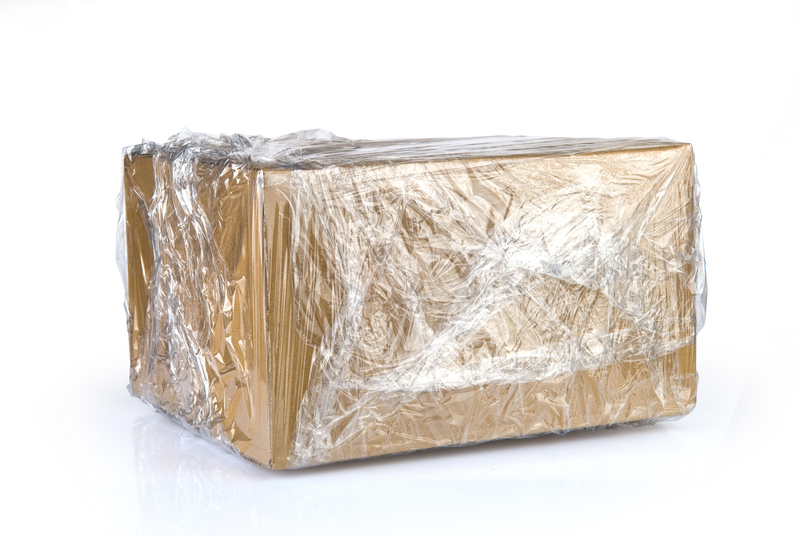Long-Term Sofa Care: Expert Storage Tactics Unveiled
Posted on 17/05/2025
Long-Term Sofa Care: Expert Storage Tactics Unveiled
A sofa isn't just a central piece of furniture in your home--it's an investment in comfort, style, and family gatherings. But what happens when you need to store your sofa for an extended period? Whether you're moving, redecorating, or need to make space, caring for your sofa during long-term storage is crucial to preserve its beauty and function. In this comprehensive guide, we'll uncover expert storage tactics to ensure that your sofa emerges from storage just as inviting and pristine as the day it left your living room.

Why Proper Sofa Storage Matters
When it comes to long-term sofa storage, improper techniques can result in irreversible damage. From warped frames and faded fabrics to infestations and odors, the risks are real. Investing time and care in proper storage extends the life of your sofa and saves you from costly repairs or replacements.
- Protects against moisture, dust, and pests
- Maintains structural integrity and upholstery quality
- Preserves aesthetic and monetary value
Preparing Your Sofa for Storage
1. Deep Cleaning: The First Essential Step
It's vital to start with a clean sofa. Any dirt, debris, or moisture left behind can cause mold, mildew, or odors during long-term storage.
- Vacuum every inch, including crevices and under cushions, to remove dust and pet hair.
- Spot-clean stains with manufacturer-recommended solutions or mild soapy water. Avoid soaking the fabric.
- Allow the sofa to dry completely. Moisture is the enemy of long-term storage!
- Consider professional cleaning for delicate or antique sofas.
2. Disassembly: Avoiding Stress on Components
Whenever possible, disassemble your sofa before storage. This strategy reduces the risk of warping and makes transportation easier.
- Remove legs, cushions, and detachable arms.
- Keep all screws and hardware in a labeled bag and tape it to the underside of the sofa frame.
- Wrap separate pieces in moving blankets or bubble wrap for extra protection.
3. Wrapping and Protection Techniques
Proper wrapping prevents dust, moisture, and pests from damaging upholstery and frame.
- Use plastic wrap only loosely; avoid direct contact with fabric to allow air circulation.
- Mover's blankets or furniture pads offer soft protection for both fabric and leather sofas.
- Seal gaps with breathable covers to ward off pests and keep dust at bay.
Choosing the Best Storage Environment
Climate-Controlled Storage Units: The Gold Standard
For optimal long-term sofa preservation, a climate-controlled storage unit is highly recommended. These units:
- Maintain steady temperature and humidity levels, preventing warping, mold, and cracking
- Protect against temperature extremes that degrade fabrics and adhesives
- Deter pests, thanks to improved building integrity and regular maintenance
Alternative Storage Options
If climate-controlled storage isn't accessible, select the cleanest, driest, and most secure facility you can find. Avoid storing sofas in:
- Unfinished basements prone to flooding or high humidity
- Garages without insulation
- Sheds with significant temperature fluctuations
*If unavoidable, add desiccants like silica gel packs or dehumidifiers and check your sofa regularly.*
Furniture Placement: Smart Storage Positioning
Keep It Elevated!
Never place your sofa directly on the floor, especially in basements or garages.
- Use pallets, cinder blocks, or shelving to keep the sofa off the ground
- This prevents moisture absorption and limits pest access
Avoid Overstacking and Heavy Loads
Do not stack boxes or other furniture on top of your sofa. Even lightweight items can cause dents or deform cushions over time.
- Store sofas upright or flat in their natural, intended positions
- Leave a small gap between the sofa and the storage unit's walls for air circulation
Special Care for Different Sofa Materials
Fabric Sofas
- Clean thoroughly and ensure it's dry to prevent mildew
- Use breathable covers instead of plastic to allow airflow
- Check for insect or rodent repellents safe for use near upholstery
Leather Sofas
- Clean with specialty leather cleaners and condition before storage to maintain suppleness
- Cover with cotton sheets to keep dust away while allowing the leather to breathe
Wood or Metal Frames
- Protect exposed wood with polish or oil to prevent cracking or warping
- For metal, ensure no moisture is present to avoid rust
Expert Tips: Maximizing Long-Term Sofa Storage Success
- Document your sofa's condition with detailed photos before packing. This helps with insurance claims and ensures you notice any changes after storage.
- Label each component. Especially important for sectional sofas to make reassembly straightforward.
- Revisit your storage unit every few months. Check for early signs of pests, moisture, or mold.
- Insurance matters: Check your renter's or homeowner's policy and ask storage facilities about their coverage for furniture items.
How to Retrieve and Reassemble Your Sofa
Step-by-Step Unpacking
- Remove outer coverings gently and inspect for any unexpected signs of damage or infestation.
- Allow the sofa to air out if possible and vacuum again to remove any lingering dust.
- Check and tighten all hardware during reassembly to ensure stability.
- Use a professional cleaning service if you notice stains, odors, or discoloration after storage.
How to Extend Your Sofa's Lifespan: Proactive Maintenance Tips
Even after a period in storage, maintaining your sofa ensures it stays beautiful and functional for years to come. Here's how to keep it in top condition:
- Vacuum regularly to prevent dust and dirt build-up
- Flip and rotate cushions to promote even wear
- Avoid direct sunlight exposure to prevent fading
- Spot-clean spills immediately to avoid staining
- Condition leather annually to keep it supple
- Schedule professional deep cleanings every couple of years

Frequently Asked Questions About Long-Term Sofa Storage
Should I wrap my sofa in plastic for storage?
While it's tempting to use plastic for moisture protection, completely sealing a sofa in plastic can trap moisture and lead to mold and mildew. For best results, use plastic wrap only on the legs or base, and cover the rest with breathable materials like cotton sheets or furniture blankets.
How do I protect my sofa from pests during storage?
Cleanliness is critical--food crumbs attract pests. Choose storage facilities with pest control measures in place, and use natural repellents such as cedar chips or lavender sachets to deter insects and rodents.
How long can a sofa be stored without damage?
With proper preparation and a climate-controlled environment, a sofa can remain in storage for several years without significant risk of damage. However, regular checks every 3-6 months are recommended to spot any potential issues early.
Is long-term storage safe for antique or heirloom sofas?
Antique and heirloom sofas require extra caution. Always opt for climate-controlled storage, use high-quality protective coverings, and consider consulting a professional mover or restorer to create a custom storage plan.
Conclusion: Secure Your Sofa's Future With Expert Storage Tactics
Storing a sofa for the long term is much more than finding a place to put it--it's about preserving its value, appearance, and comfort for years to come. By following these expert sofa storage tips, you're not only protecting your investment but also ensuring that your favorite piece of furniture will continue to be the heart of your home whenever you need it.
In short, the secrets to successful long-term sofa care include:
- Thorough cleaning and drying
- Strategic disassembly and smart wrapping
- Choosing the best storage environment, preferably climate-controlled
- Elevating and positioning the sofa with care
- Periodic monitoring and preventative maintenance
By implementing these proven strategies, your sofa will not only survive storage but thrive afterward--ready to bring comfort and memories for many more years.
Looking for more tips on home furniture care and storage? Stay tuned for more expert guides and advice for all your home and storage needs!
Latest Posts
Innovative Techniques for Solo Heavy Lifting
Step-by-Step Guide to Packing Like a Pro for Moving House
Best Practices for Storing Dormant Freezers Safely





